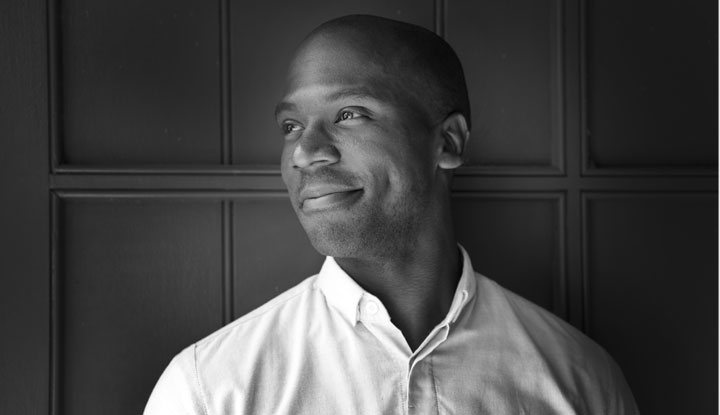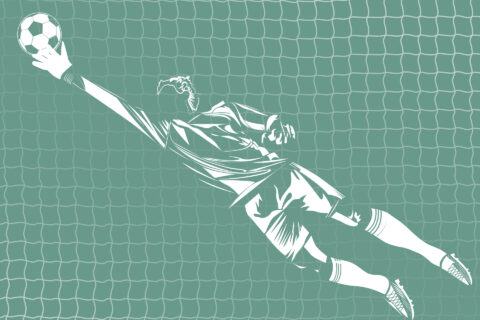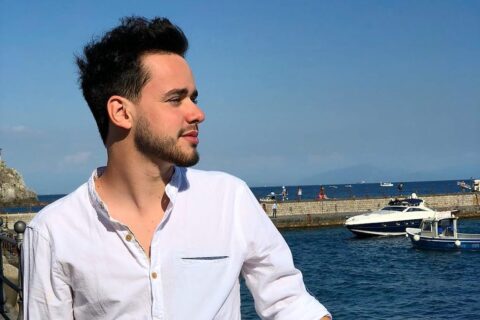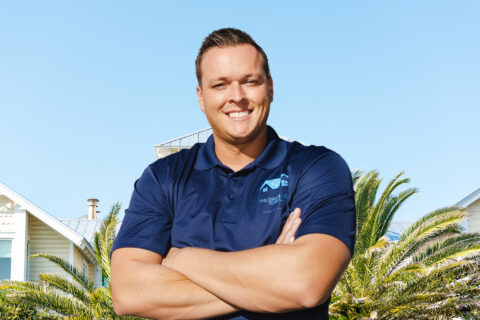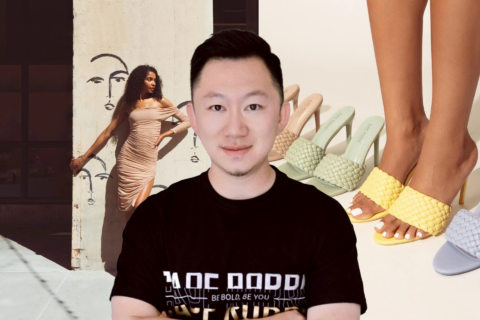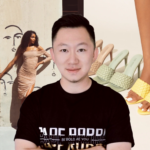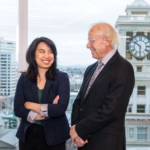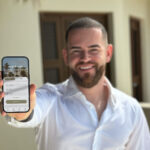In the latest installment of Success Profiles, a series highlighting the personal and professional journeys of some of the most dynamic entrepreneurs, YFS Magazine speaks with Keith Cartwright founder and CEO of Union Made Creative, a San Francisco-based marketing and advertising agency.
At the height of a double dip recession, in January 2012, Keith Cartwright started an advertising agency with a simple idea; creative work is best served when the brightest minds come together without the unnecessary burden of process or preconception.
Today the San Francisco based agency, Union Made Creative, endeavors to never be defined by a particular style or technique, but rather by how they solve big brand problems in an undefined way. After fifteen plus years in the advertising industry Cartwright, formerly a group creative director at the Martin Agency, decided to grasp an opportunity to create something new and interesting.
“In my experience I found that CEO’s, and companies, are looking for ways to be nimble and to execute quickly; and to find smart thinking without the heavy-laden process that, at times, comes with the bigger [and traditional] advertising agency models and structures,” he says. That simple philosophy led Cartwright to pursue his entrepreneurial passion.
Learn how Keith Cartwright started his ad agency after working with some of the world’s most notable brands and why he believes you have to believe in yourself and embrace the fear.
| Company: | Union Made Creative |
| Founder(s): | Keith Cartwright |
| Location: | San Francisco, CA |
| Industry: | Advertising & Marketing |
| Startup Year: | 2011 |
| Startup Costs | Undisclosed |
How I Got Started
I attended Syracuse University with the intent of becoming a fine artist. I was going to focus on painting with a possible minor in printmaking. Right before I declared my major I had a brief conversation with a professor from the school of art and design who, in about ten minutes, sold me on his program. I changed majors that day. He’s been a mentor ever since.
I got my B.S.A in communication design and a minor in illustration. I never considered getting into marketing, the business side of art, but I fell in love with it.
Capitalizing on Industry Expertise
I’ve been in advertising fifteen-plus years. I’ve worked at TBWA\Chiat\Day on Adidas, Wieden+Kennedy on Nike, and Ogilvy & Mather on American Express. All of this experience taught me a ton about solving problems for big brands, that I respect, that [practice] really smart marketing solutions. But in the business of advertising, I felt I was in a place where I wanted to create another opportunity for marketers to approach solving their problems.
As with any startup, you look for an opportunity in the marketplace and you look to see if your expertise [equips you] to capitalize on that opportunity. In my experience I found that CEO’s, and companies, are looking for ways to be nimble and to execute quickly; and to find smart thinking without the heavy-laden process that, at times, comes with the bigger [and traditional] advertising agency models and structures. So, that’s where I felt like I had an opportunity to create something new and interesting.
Solving ‘Moment of Truth’ Pain Points in Business
The people we work with, those that are a part of the ‘union’ and the people in-house — we look for people who can talk across multiple disciplines… This creates efficiencies where you don’t have to have as many people in the room to solve problems.
Clients like that — they want to get to it as quickly and as efficiently as possible from a billing and a process standpoint. CEO’s are getting smarter and more creative everyday and they want to partner with people who can hear them out and work closely with them without the rigaramo that [the industry] has created.
Creating an agency that’s built on being bespoke and nimble, but still feels [professional] and is surrounded by professionals; I felt it was a really, really smart way to solve that problem in our business, and it’s been working.
Starting a Business with a Simple Idea
We’re proud to call ourselves a startup because that term speaks to innovation, it speaks to what’s going on right now in the world …
I started the agency with a simple idea; “creative work is best served when the brightest minds come together without the unnecessary burden of process or preconception. Our goal is to never be defined by a particular style or technique, but rather be defined by how we solve a problem in an undefined way.”
We went in with a philosophy and we’re sticking to it. Any of the adjustments [we’ve made] have been minor — nothing drastic yet. We are focused on growth. For me, I don’t look at growth as a ‘body count’ situation. I think growth [asks the question]: “Are we maximizing our potential of what we can do and where we can go, with the people and the resources that we have?”
If it requires ‘hiring up’ we’ll do that. If it requires bringing in another business partner — we’ll do that. So those are the things that we’re adjusting on a daily basis. It’s the ability to say, “We’ll tear things down if they’re not working and we’ll build up new approaches to marketing when necessary.”
Monetizing Creativity Beyond the Billable Hour
[Our revenue model] is based on a couple of things. Essentially, with clients, we develop our scope [of work] based on the need; on a project basis. We aren’t opposed to agency of record, retainer-based, relationships; we’re entering a few of those now.
For the most part, we don’t look at projects on an hourly basis — we scope the job, the work that needs to be done, and we [set rates] based upon, not just man hours, the amount of resources. Based on the difficulty of the problem we [use] a different kind of matrix. For example, starting with a company from scratch, on how we can rethink who they are is going to require more work than a [campaign] refresh or an idea that sits within a campaign. So, we don’t bill like lawyers do, based on an hourly rate and time sheets …, we look at the job at hand and assign a price to that based on [the scope].
Looking Forward
Looking forward, we plan to clearly articulate a message of what we absolutely stand for and then live that — in our PR, in any and everything we do. We need to figure out how to ingrain that more in the hearts and minds of people. So, … when people here about us it is very, very clear what we bring to the table.
Crystallizing our philosophy and understanding what growth [looks like]; those two things are really important in figuring out what Union Made Creative is and what we will be.
Best Success Story
Nike, in LA, came to us. Certain offices of Nike sit in regions and they speak to that region almost like a separate entity (i.e. Nike New York, Nike LA, Nike South (Atlanta) and Nike West). We work exclusively with Nike West, covering the entire Western seaboard.
[Initially] the client came to me and asked, “How do we define Nike West in a way that sits on ‘Just do it!’ and is still about the ethos [i.e. worldview that they absolutely believe in and act in accordance with] of the brand?
The ethos of the Nike brand is, “If you have a body, you’re an athlete.” Nike LA has a different set of criteria, questions, problems, and things they want to address as a West coast fitness and sports business. So, how do you address that? What does Nike LA (in the West) stand for? We took that [task] head on, did quite a few interviews with the brand, athletes and regular people who live in LA. Then we came to a strategy that we’re really proud of … and a manifesto and a commercial that articulates that. They were incredibly excited about it and we’ve been doing work with them ever since.
To go into a brand that has a really strong marketing history, and take on the real business problem — to figure how to create another platform within that — was by far one of the most exciting things we’ve done so far.
Biggest Startup Challenge
I’m a creative person, yet I have people I work with on the business-side (i.e. attorneys, accountants, financiers, etc.). I think learning and respecting that [side of the business is a challenge]. Your hear it. You have those conversations and those meetings, but there’s creativity in it and a learning curve for anyone who [doesn’t have that background].
I am better at [the business side] than when I started and I’m grateful for having the right people to get me through it. It is by far the most challenging thing — understanding what quarters mean and forecasting; being respectful of where you are versus where you want to go.
#1 Tip for Entrepreneurs
It’s always scary and that’s okay. If you’re not nervous and scared then you’re probably not going to be aware when things come about. You want to go into it with a certain level of angst. I think it breeds creativity. It breeds innovation. It breeds development.
Don’t run because you’re nervous. Understand that it’s a part of it. If you ask any entrepreneur, “Were you scared? Were you nervous?” and they’ll all say “Yeah, of course!” But I look at it as a good thing … it is a human reaction to anything new. You have to believe in yourself and embrace the fear.
© YFS Magazine. All Rights Reserved. Copying prohibited. All material is protected by U.S. and international copyright laws. Unauthorized reproduction or distribution of this material is prohibited. Sharing of this material under Attribution-NonCommercial-NoDerivatives 4.0 International terms, listed here, is permitted.
